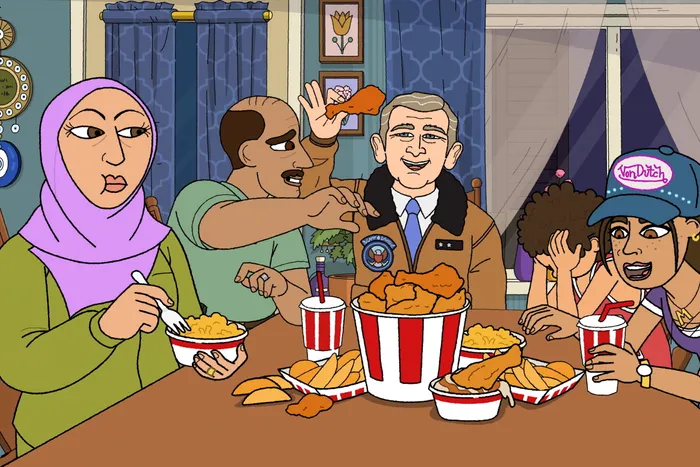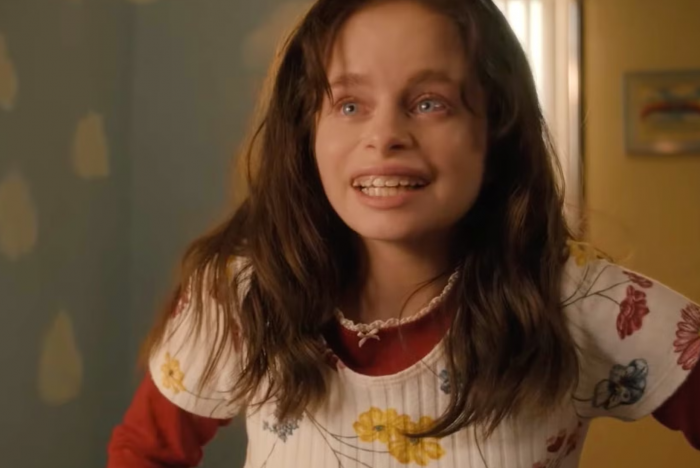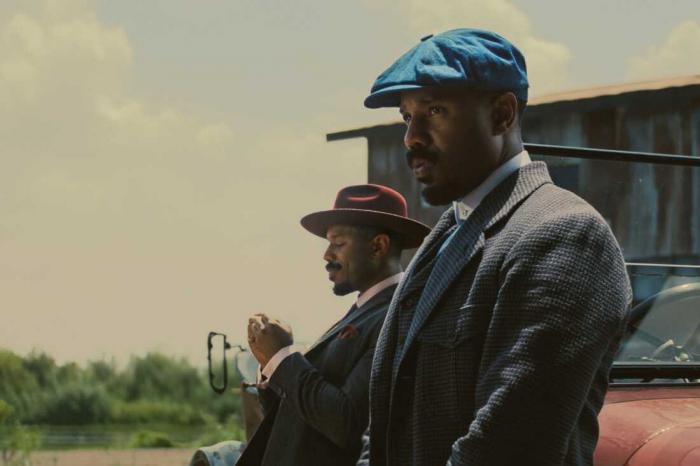
I Watched a Cartoon, and I Liked It
By Dustin Rowles | TV | May 1, 2025

There’s a long-running joke on this site, on our television podcast, and even in my family life that I do not like animated series. And it’s mostly true. I do not love the form. There are some animated series I’ve enjoyed sporadically — Rick & Morty and Archer for a couple of seasons, Invincible for three-quarters of a season, begrudgingly Gravity Falls and DuckTales, and I’ll always sit and watch Bob’s Burgers with the kids — but I’m just not that into it. It’s like potato salad. I don’t like it. But I will tolerate it sometimes, and I can stomach it — and maybe even enjoy it briefly — but I’m never going to choose potato salad over mashed potatoes or fries.
Everyone, however, is always trying to convince me that I’ll love their potato salad. “You just haven’t tried the right potato salad,” they’ll say. But that’s not really how potato salad works. In fact, I might argue that the better the potato salad is, the more I’ll dislike it — because it’s more honest about its identity as potato salad. I mean, if you were to offer me potato salad without mayo or celery or onions, and it was warm and had butter and was mashed instead, maybe I’d like the potato salad.
With that in mind, I don’t really know what to make of my strong affection for #1 Happy Family USA. I didn’t even mean to watch it. It came on after I finished another series on Prime Video, and as soon as I saw it was a cartoon, I reached for the remote to turn it off. But the hook hits almost immediately: we see an average Muslim suburban family in New Jersey getting ready for their day, only the day is September 10th, 2001.
Oh. OK. I’m intrigued.
The first episode essentially takes us through a typical day in the life of an Egyptian-American family. There’s the underachieving little brother, Rumi (voiced by Ramy Youssef, who also co-created the show with Pam Brady of South Park); the overachieving sister, Mona (Alia Shawkat), who is a closeted lesbian; the America-loving father, Husein Husein (also Youssef); the Princess Di-obsessed mom, Sharia Hussein (Salma Hindy); and the grandmother, a traditional Muslim matriarch (Randa Jarrar). Rumi goes to school and fantasizes about having an affair with his teacher, Mrs. Malcom (Mandy Moore) — a fantasy modeled after Mary Kay Letourneau — but otherwise has a typical day with his classmates, Marcus and Garrett (Chris Redd and Whitmer Thomas). Other than the fact that their grandfather dies (and his ghost haunts them for the entire first season), there’s not much, besides the fact that the central family is Muslim, that separates #1 Happy Family USA from the typical Seth MacFarlane animated series.
And then September 11th happens, and everything changes. The comedy is no longer about their Muslim identity, but about how they navigate it in a post-9/11 world, where their neighbors, classmates, and even the police assume they are terrorists. The show becomes a story about code-switching. The dad does everything he can to assimilate into American culture, going so far as to appear on Fox News — to be seen as “one of the good ones.” Sharia retreats further into her religion while also becoming more obsessed with Princess Di and various conspiracy theories. Mona embraces her identity as a Muslim (while continuing to hide her sexual orientation) and tries to leverage it to her advantage in a run for class president. Rumi, meanwhile, just tries to be what everyone wants him to be. He wants to fit in, be popular, and maybe still sleep with his teacher.
There have been a number of TV shows and movies that have tried to reckon with how Muslim Americans were treated after 9/11, but so much of that storytelling comes from the perspective of white Americans confronting their own biases. #1 Happy Family USA is an empathetic comedy told from the inside — from the perspective of a regular Muslim family living in New Jersey.
It’s also very fucking funny, not just for the way it finds comedy in trauma rooted in American racism, but also for its pop-culture references from the early 2000s and its unabashedly juvenile humor. There are so many scatological jokes. It’s like Big Mouth meets Bob’s Burgers meets a perspective we’re seeing for the first time in the 24 years since the 9/11 attacks, which I suppose is how long it took to turn this kind of tragedy into comedy. Or maybe it’s because the bigotry depicted here in 2001 never really went away, and it took this long before someone finally greenlit a show that mines and subverts stereotypes from within the Muslim-American community with agency and bite.
There are also some great supporting characters. There’s an FBI agent (Timothy Olyphant) who moves across the street, and while the Husseins are terrified he’s there to surveil them, he’s really just a drunk and lonely divorced dad who desperately wants a friend. Kieran Culkin plays Sharia’s boss, a dentist who tries to comfort her by appropriating her culture. Chris Redd also plays Rumi’s Black best friend who — as a veteran — has plenty of advice to offer Rumi about code-switching. Oh, and I should also mention that there are a few surprisingly amazing musical numbers.
#1 Happy Family USA is chaotic and weird and often very gross, but it’s also deeply thoughtful in ways that sneak up on you. It’s the kind of show that somehow earns its scatological jokes by anchoring them in something real. I may not like potato salad, but this one? I’d go back for seconds.


